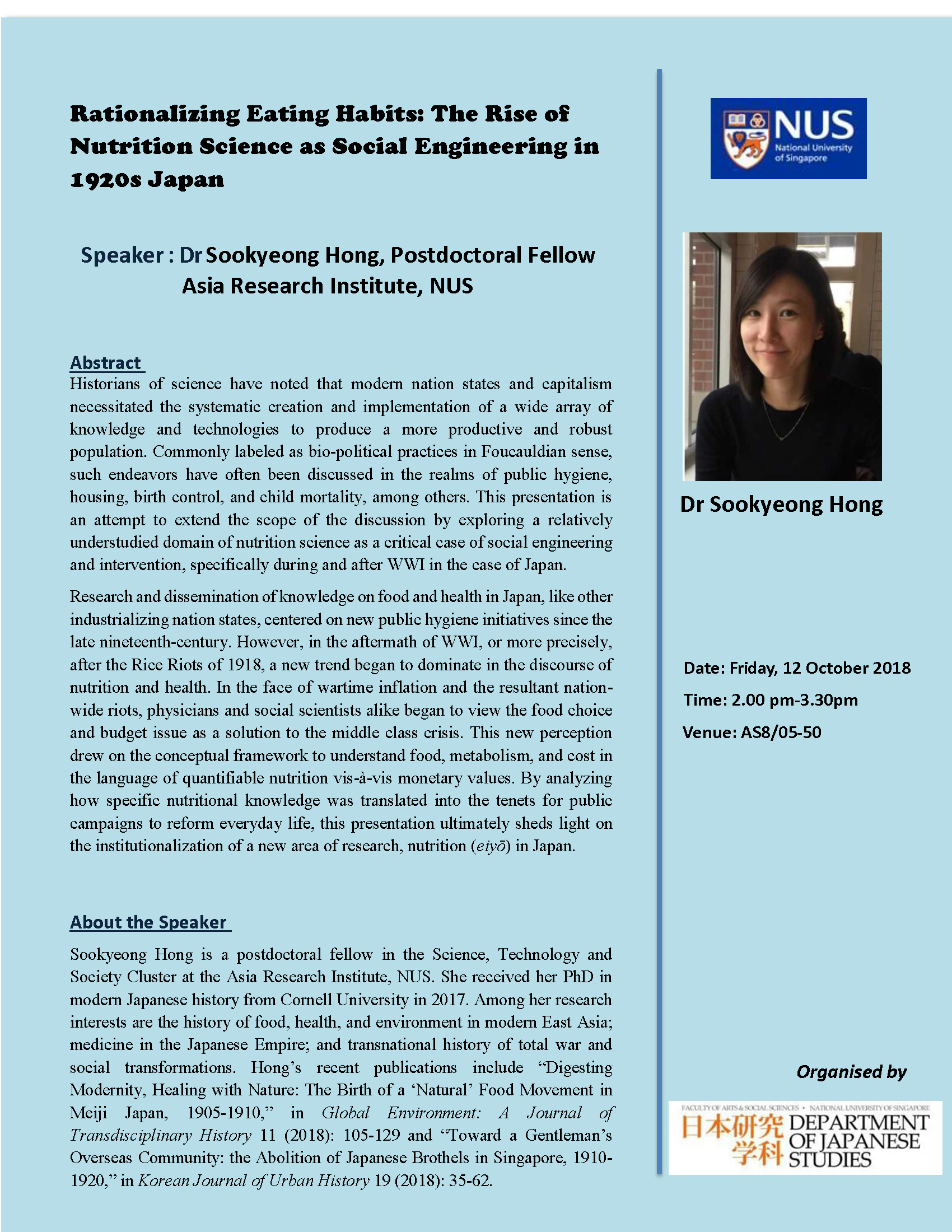Rationalizing Eating Habits: The Rise of Nutrition Science as Social Engineering in 1920s Japan
Abstract
Historians of science have noted that modern nation states and capitalism necessitated the systematic creation and implementation of a wide array of knowledge and technologies to produce a more productive and robust population. Commonly labeled as bio-political practices in Foucauldian sense, such endeavors have often been discussed in the realms of public hygiene, housing, birth control, and child mortality, among others. This presentation is an attempt to extend the scope of the discussion by exploring a relatively understudied domain of nutrition science as a critical case of social engineering and intervention, specifically during and after WWI in the case of Japan. Research and dissemination of knowledge on food and health in Japan, like other industrializing nation states, centered on new public hygiene initiatives since the late nineteenth-century. However, in the aftermath of WWI, or more precisely, after the Rice Riots of 1918, a new trend began to dominate in the discourse of nutrition and health. In the face of wartime inflation and the resultant nationwide riots, physicians and social scientists alike began to view the food choice and budget issue as a solution to the middle class crisis. This new perception drew on the conceptual framework to understand food, metabolism, and cost in the language of quantifiable nutrition vis-à -vis monetary values. By analyzing how specific nutritional knowledge was translated into the tenets for public campaigns to reform everyday life, this presentation ultimately sheds light on the institutionalization of a new area of research, nutrition (eiyō) in Japan.
About the Speaker
Sookyeong Hong is a postdoctoral fellow in the Science, Technology and Society Cluster at the Asia Research Institute, NUS. She received her PhD in modern Japanese history from Cornell University in 2017. Among her research interests are the history of food, health, and environment in modern East Asia; medicine in the Japanese Empire; and transnational history of total war and social transformations. Hong’s recent publications include “Digesting Modernity, Healing with Nature: The Birth of a ‘Natural’ Food Movement in Meiji Japan, 1905-1910,” in Global Environment: A Journal of Transdisciplinary History 11 (2018): 105-129 and “Toward a Gentleman’s Overseas Community: the Abolition of Japanese Brothels in Singapore, 19101920,” in Korean Journal of Urban History 19 (2018): 35-62.


